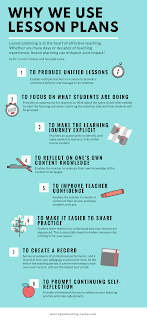I drove past a child care center the other day and shook my head at what I saw. It was clearly their designated "outdoor time." The children were moving about the tiny fenced in play area while the two "teachers" stood next to each other, leaning up against the fence, looking at their cell phones (insert cringe and shudder here!).
Later in the week, I was across the street from a different center where I saw several children roaming around on an outdoor deck. I could see that the children inside were watching a movie on a television screen, but the sliding doors were left open for those that did not want to watch the movie to go "outside." One teacher stood on the deck and, again, had her cell phone out. There were no toys or designated play areas on this deck either.
I could rant about the obvious lack of supervision and give several reasons why cell phones should not be used while you are supposed to be caring for children. I could discuss how important it is for teachers to step away from the fence and actually engage in play with the children. However, what I want to focus on is the importance of getting children outside for more than just recess.
Let me start by sharing a little bit about me personally. I prefer to be indoors. I prefer to be where the bugs aren't and where I can have air conditioning. Any one that knows me would never refer to me as an outdoor-loving, nature person. But, I do know how important it is for children to be outdoors and, as an early childhood educator, I had my class outside for as much of the day as possible (I also had the air conditioner set to "arctic" in my classroom!).
Harvard Medical School identified five benefits to being outdoors.
- Vitamin D levels will increase.
- Exercise will increase (and screen time is reduced!).
- You will be happier.
- Concentration will improve.
- Health will improve.
Get creative with your curriculum planning! All types of learning can happen outdoors. Art is one of the most popular activities to incorporate into the outdoors. Typically, teachers bring out sidewalk chalk or some coloring supplies. That is a great start! Plan for painting either on unusual canvas' or with unusual painting utensils. Create art sculptures using materials they find outdoors. Do bark rubbings or brick rubbings depending on the outdoor environment you have.
Plan literacy and math activities for outdoors. Start simple - take a book outside and read! Find "hidden" letters and shapes in the things you see outdoors. Count everything! Graph using rocks/pebbles, leaves, or twigs.
Bring music outdoors. The easiest way to begin is to sing and as loud as you want! Create music with instruments they find outdoors such as clicking two sticks together or running a stick up and down a fence. Listen for sounds outdoors and create a dance to the sounds they hear.
Science? Dig in the dirt. Find bugs and insects. Cloud watch. Identify trees by their leaves or their bark. Build levers, catapults, and pulleys. Explore different aspects of water play and motion.
Everything experience you plan for indoors can be done outdoors with some creative thinking and planning. Make sure families know that you will be spending a lot of time outdoors and to make sure that children have the appropriate clothing and footwear for various weather conditions. Yes, it's okay to take them out when it's raining or snowing! Just make sure the temperatures are safe, that the children are dressed appropriately, and that the teachers are prepared. Some children will wander from activities at first because they are used to outdoor time just being for recess. But, children can wander away from activities indoors too! The more you are outside and the more activities you do outside the more involved they will become.






